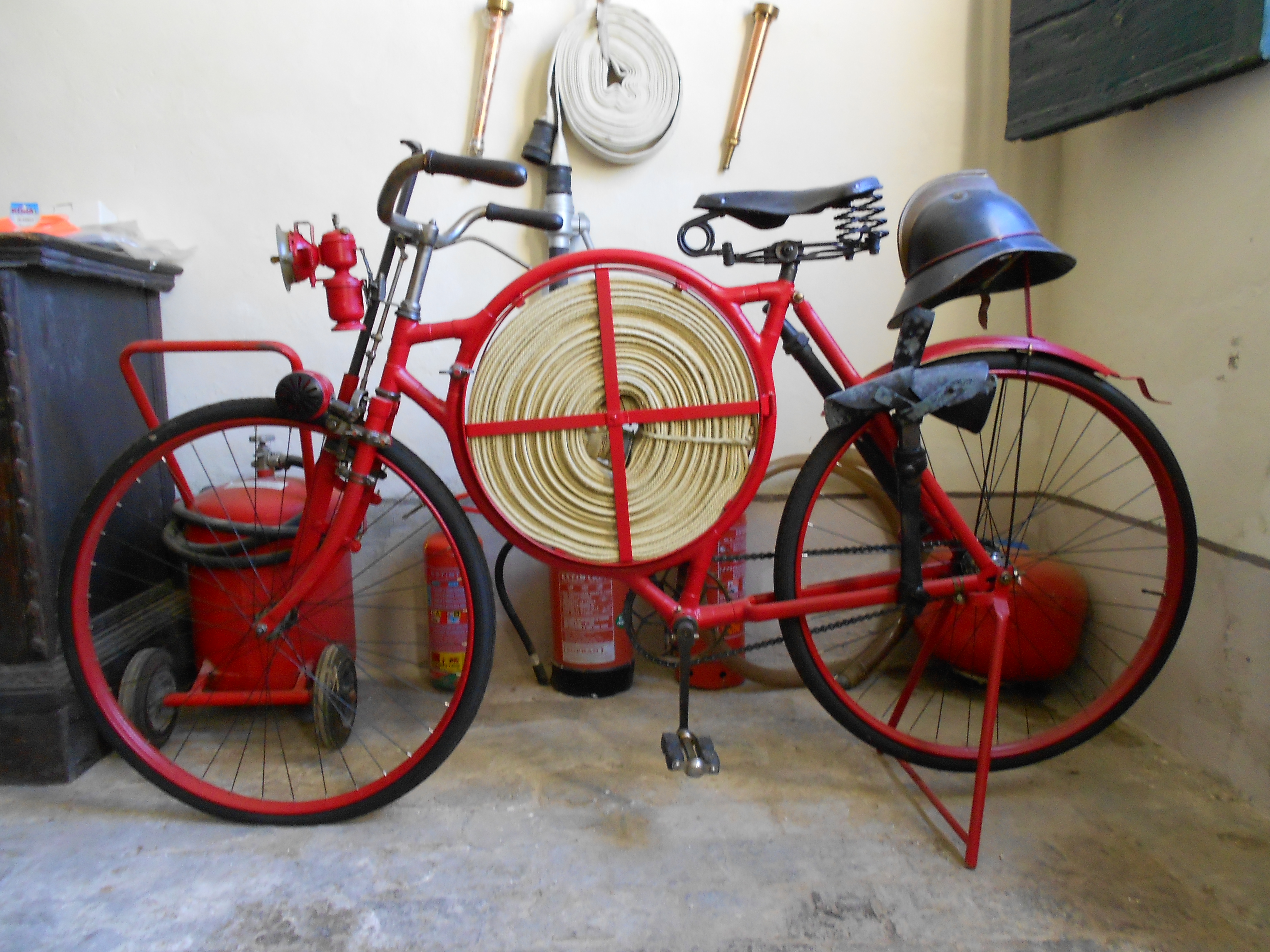|
Nasty (The Young Ones)
"Nasty" is the ninth episode of British sitcom '' The Young Ones''. It was written by Ben Elton, Rik Mayall and Lise Mayer, and directed by Paul Jackson. It was first aired on BBC2 on 29 May 1984. Plot The episode begins with a man playing chess against Death. After losing to the man, Death declares "Bollocks to this!" and attacks the man with his scythe. The horror movie-themed opening credits are followed by Mike, Rick, Vyvyan and Neil carrying a coffin through a local cemetery. The coffin is brought to a freshly-dug grave where a passing woman asks a spade-holding Neil if he digs graves, to which Neil replies, "Yeah, they're all right." After encountering a drunken vicar and two gravediggers, the episode then takes a flashback to events leading up to the burial. It is bath night, and while Neil jumps into the muddy bathwater used in the three others' previous baths (inadvertently finding his long-lost bicycle in the process), Rick locks himself in his room and gets on ... [...More Info...] [...Related Items...] OR: [Wikipedia] [Google] [Baidu] |
The Young Ones (TV Series)
''The Young Ones'' is a British sitcom written by Rik Mayall, Ben Elton, and Lise Mayer, starring Adrian Edmondson, Mayall, Nigel Planer, Christopher Ryan, and Alexei Sayle, and broadcast on BBC Two for two series, first shown in 1982 and 1984. The show focused on the lives of four dissimilar students and their landlord's family on different plots that often included anarchic, offbeat, surreal humour. The show often included slapstick gags, visual humour and surreal jokes sometimes acted out by puppets, with each episode also featuring a notable selection of guest stars and musical numbers from various performers. ''The Young Ones'' helped bring alternative comedy to British television in the 1980s and made household names of its writers and performers. The show became a notable icon of 1980s British popular culture, and it received its own game and a home-media release while becoming the first non-music-related programme to appear on MTV in the United States in 1985. The show wa ... [...More Info...] [...Related Items...] OR: [Wikipedia] [Google] [Baidu] |
Barry Stanton (actor)
Barry Stanton (born 18 February 1940) is a British stage, film and television actor.Brand p.80 Selected filmography Film * '' Robbery'' (1967) * ''King Lear'' (1971) * ''Demons of the Mind'' (1972) * ''Hamlet'' (1977) * ''Sweeney 2'' (1977) * '' Lionheart'' (1987) * ''King of the Wind'' (1990) * ''Robin Hood'' (1991) * ''Shanghai Knights'' (2003) Television * ''The Plane Makers'' (1963) * ''Front Page Story'' (1965) * '' The Baron'' (1966) * ''The Likely Lads'' (1966) * ''Witch Hunt'' (1967) * ''No Hiding Place'' (1967) * '' George and the Dragon'' (1968) * ''Spy Trap'' (1972) * '' Budgie'' (1972) * '' The Sweeney'' (1975) * '' Upstairs, Downstairs'' (1975) * '' The New Avengers'' (1977) * ''Fallen Hero'' (1978-1979) * ''Turtle's Progress'' (1979-1980) * '' The Search for Alexander the Great'' (1981) * '' Something in Disguise'' (1982) * ''Minder'' (1982) * '' Now and Then'' (1983) * '' Doctor Who'' (1984) * ''Tucker's Luck'' (1984) * '' Mann's Best Friends'' (1985) * ''Yes, Pr ... [...More Info...] [...Related Items...] OR: [Wikipedia] [Google] [Baidu] |
Video Nasty
Video nasty is a colloquial term popularised by the National Viewers' and Listeners' Association (NVALA) in the United Kingdom to refer to a number of films, typically low-budget horror or exploitation films, distributed on video cassette that were criticised for their violent content by the press, social commentators and various religious organisations in the early 1980s. These video releases were not brought before the British Board of Film Classification (BBFC) due to a loophole in film classification laws that allowed videos to bypass the review process. The resulting uncensored video releases led to public debate concerning the availability of these films to children due to the unregulated nature of the market. Following a campaign led by Mary Whitehouse and the NVALA, prosecutions were commenced against individuals engaged in trades exploiting allegedly obscene videos. To assist local authorities in identifying obscene films, the Director of Public Prosecutions released a l ... [...More Info...] [...Related Items...] OR: [Wikipedia] [Google] [Baidu] |
Cosmopolitan (magazine)
''Cosmopolitan'' is an American monthly fashion and entertainment magazine for women, first published based in New York City in March 1886 as a family magazine; it was later transformed into a literary magazine and, since 1965, has become a women's magazine. ''Cosmopolitan'' is one of the best-selling magazines and is directed mainly towards a female audience. Jessica Pels is the magazine's current editor-in-chief. Formerly titled ''The Cosmopolitan'' and often referred to as ''Cosmo'', throughout the years, ''Cosmopolitan'' has adapted its style and content. Its current incarnation was originally marketed as a woman's fashion magazine with articles on home, family, and cooking. Eventually, editor-in-chief Helen Gurley Brown changed its attention to more of a women empowerment magazine. Nowadays, its content includes articles discussing relationships, sex, health, careers, self-improvement, celebrities, fashion, horoscopes, and beauty. ''Cosmopolitan'' is published by New York ... [...More Info...] [...Related Items...] OR: [Wikipedia] [Google] [Baidu] |
Bicycle
A bicycle, also called a pedal cycle, bike or cycle, is a human-powered or motor-powered assisted, pedal-driven, single-track vehicle, having two wheels attached to a frame, one behind the other. A is called a cyclist, or bicyclist. Bicycles were introduced in the 19th century in Europe. By the early 21st century, more than 1 billion were in existence. These numbers far exceed the number of cars, both in total and ranked by the number of individual models produced. They are the principal means of transportation in many regions. They also provide a popular form of recreation, and have been adapted for use as children's toys, general fitness, military and police applications, courier services, bicycle racing, and bicycle stunts. The basic shape and configuration of a typical upright or "safety bicycle", has changed little since the first chain-driven model was developed around 1885. However, many details have been improved, especially since the advent of modern ... [...More Info...] [...Related Items...] OR: [Wikipedia] [Google] [Baidu] |
Spade
A spade is a tool primarily for digging consisting of a long handle and blade, typically with the blade narrower and flatter than the common shovel. Early spades were made of riven wood or of animal bones (often shoulder blades). After the art of metalworking was developed, spades were made with sharper tips of metal. Before the introduction of metal spades manual labor was less efficient at moving earth, with picks being required to break up the soil in addition to a spade for moving the dirt. With a metal tip, a spade can both break and move the earth in most situations, increasing efficiency. A classic spade, with a narrow body and flat (or near flat) tip is suited for digging post holes, and is not to be confused with a "roundpoint" shovel, which has a wider body and tapered tip. Etymology English ''spade'' is from Old English ' (f.) or ' (m.). The same word is found in Old Frisian ' and Old Saxon '. High German ' only appears in Early Modern German, probably loaned from ... [...More Info...] [...Related Items...] OR: [Wikipedia] [Google] [Baidu] |
Cemetery
A cemetery, burial ground, gravesite or graveyard is a place where the remains of dead people are buried or otherwise interred. The word ''cemetery'' (from Greek , "sleeping place") implies that the land is specifically designated as a burial ground and originally applied to the Roman catacombs. The term ''graveyard'' is often used interchangeably with cemetery, but a graveyard primarily refers to a burial ground within a churchyard. The intact or cremated remains of people may be interred in a grave, commonly referred to as burial, or in a tomb, an "above-ground grave" (resembling a sarcophagus), a mausoleum, columbarium, niche, or other edifice. In Western cultures, funeral ceremonies are often observed in cemeteries. These ceremonies or rites of passage differ according to cultural practices and religious beliefs. Modern cemeteries often include crematoria, and some grounds previously used for both, continue as crematoria as a principal use long after the interment ... [...More Info...] [...Related Items...] OR: [Wikipedia] [Google] [Baidu] |
Scythe
A scythe ( ) is an agricultural hand tool for mowing grass or harvesting crops. It is historically used to cut down or reap edible grains, before the process of threshing. The scythe has been largely replaced by horse-drawn and then tractor machinery, but is still used in some areas of Europe and Asia. Reapers are bladed machines that automate the cutting of the scythe, and sometimes subsequent steps in preparing the grain or the straw or hay. The word "scythe" derives from Old English ''siðe''. In Middle English and later, it was usually spelt ''sithe'' or ''sythe''. However, in the 15th century some writers began to use the ''sc-'' spelling as they thought (wrongly) the word was related to the Latin ''scindere'' (meaning "to cut"). Nevertheless, the ''sithe'' spelling lingered and notably appears in Noah Webster's dictionaries. A scythe consists of a shaft about long called a ''snaith'', ''snath'', ''snathe'' or ''sned'', traditionally made of wood but now sometimes me ... [...More Info...] [...Related Items...] OR: [Wikipedia] [Google] [Baidu] |
Chess
Chess is a board game for two players, called White and Black, each controlling an army of chess pieces in their color, with the objective to checkmate the opponent's king. It is sometimes called international chess or Western chess to distinguish it from related games, such as xiangqi (Chinese chess) and shogi (Japanese chess). The recorded history of chess goes back at least to the emergence of a similar game, chaturanga, in seventh-century India. The rules of chess as we know them today emerged in Europe at the end of the 15th century, with standardization and universal acceptance by the end of the 19th century. Today, chess is one of the world's most popular games, played by millions of people worldwide. Chess is an abstract strategy game that involves no hidden information and no use of dice or cards. It is played on a chessboard with 64 squares arranged in an eight-by-eight grid. At the start, each player controls sixteen pieces: one king, one queen, two rooks, t ... [...More Info...] [...Related Items...] OR: [Wikipedia] [Google] [Baidu] |
BBC Two
BBC Two is a British free-to-air public broadcast television network owned and operated by the BBC. It covers a wide range of subject matter, with a remit "to broadcast programmes of depth and substance" in contrast to the more mainstream and popular BBC One. Like the BBC's other domestic TV and radio channels, it is funded by the television licence, and is therefore free of commercial advertising. It is a comparatively well-funded public-service network, regularly attaining a much higher audience share than most public-service networks worldwide. Originally styled BBC2, it was the third British television station to be launched (starting on 21 April 1964), and from 1 July 1967, Europe's first television channel to broadcast regularly in colour. It was envisaged as a home for less mainstream and more ambitious programming, and while this tendency has continued to date, most special-interest programmes of a kind previously broadcast on BBC Two, for example the BBC Proms, no ... [...More Info...] [...Related Items...] OR: [Wikipedia] [Google] [Baidu] |
Sitcom
A sitcom, a portmanteau of situation comedy, or situational comedy, is a genre of comedy centered on a fixed set of characters who mostly carry over from episode to episode. Sitcoms can be contrasted with sketch comedy, where a troupe may use new characters in each sketch, and stand-up comedy, where a comedian tells jokes and stories to an audience. Sitcoms originated in radio, but today are found mostly on television as one of its dominant narrative forms. A situation comedy television program may be recorded in front of a studio audience, depending on the program's production format. The effect of a live studio audience can be imitated or enhanced by the use of a laugh track. Critics disagree over the utility of the term "sitcom" in classifying shows that have come into existence since the turn of the century. Many contemporary American sitcoms use the single-camera setup and do not feature a laugh track, thus often resembling the dramedy shows of the 1980s and 1990s rather t ... [...More Info...] [...Related Items...] OR: [Wikipedia] [Google] [Baidu] |
Time (The Young Ones)
"Time" is the tenth episode of British sitcom '' The Young Ones''. It was written by Ben Elton, Rik Mayall and Lise Mayer, and directed by Paul Jackson. It was first aired on BBC2 on 5 June 1984. Plot The episode begins with opening credits and setting which parodies the popular American soap opera ''Dallas''. As a greedy owner of a fictional Texas oil company, Neil signs over oil wells and gives away six billion dollars to the entire public. This philanthropy initially disappoints Rick, who portrays an American client, but he later concurs with Neil's altruism. Meanwhile, Neil is woken from this beautiful dream by Vyvyan, who angrily yells to the Sunday bellringers outside to be quiet. Rick wakes up next to a young, but unknown woman, fully clothed. His initial shock and confusion is tempered by his realisation that he can boast about a sexual conquest to the others. His housemates are doubtful. Vyvyan is repulsed by the notion of a woman fancying Rick and is also jealous. Nei ... [...More Info...] [...Related Items...] OR: [Wikipedia] [Google] [Baidu] |





